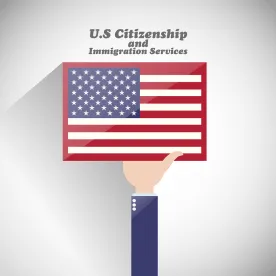On April 11th, USCIS announced that its computer-generated random selection process was completed. USCIS drew the numbers of the lucky H-1B petitions that made the cut under the congressionally-mandated regular cap of 65,000 visa numbers and the U.S. advanced degree exemption of 20,000 visa numbers for fiscal year (FY) 2020. In addition, USCIS announced that it will reject and return all unselected petitions with their filing fees (except where the petition was a prohibited multiple filing).
Information released by USCIS shows that the Service received a total of 201,011 petitions were within the first five business days of the FY 2020 filing period, which is an increase from last year’s total of 190,098. Thus, for each of the last seven years, the demand for H-1B visas has outnumbered the limited congressional mandated supply of 85,000. This data underscores the crucial need for Congress to respond to the needs of the marketplace and increase the H-1B cap.
Unlike last year, when USCIS suspended premium processing for all H-1B petitions, USCIS offered the expedited premium processing service this year for H-1B cap-subject petitions requesting a change of status (but not for those where the foreign-national worker is seeking to apply for a visa at a consular post abroad). For petitions using premium processing, practitioners have already started receiving electronic email receipt notices. For all other FY 2020 cap-subject petitions, Premium Processing Service will not be available until at least June 2019.
It is encouraging to see that some of the premium processing electronic receipts indicate that the service center will adjudicate the cases within 15 calendar days of the notice received date. USCIS had previously stated that in order to prioritize data entry for cap-subject H-1B petitions, it would not begin premium processing immediately. As for those petitions that selected regular processing, it will take several weeks or longer for USCIS to complete initial data entry and notify employers that their petitions were selected in the lottery.
However, lucky lottery winners might have to hold off on celebrating a little longer as the cap lottery selection in recent years has proven to be only the first big hurdle petitions had to cross. A petition selected in the lottery might be subject to an USCIS Request for Evidence review (“RFE”). The percentage of H-1B cases subject to an RFE have been on the rise in the last several years, and in FY 2018, the percentage increased to 38 percent. In addition, recently released data confirms that in the first quarter of FY 2019, the RFE rate climbed to 60 percent, compared to 45.6 percent in the first quarter of FY 2018.
The issuance of an RFE indicates that the USCIS adjudicator requires additional evidence to be able to make a decision. Therefore, additional time will be required to prepare a response to the adjudicator’s request and obtain a final determination. The good news is that even after an RFE is issued, the majority of H-1B petitions are ultimately approved. In conclusion, most of the lucky winners selected in the lottery will be able to celebrate their H-1B approval in the end.




 />i
/>i
